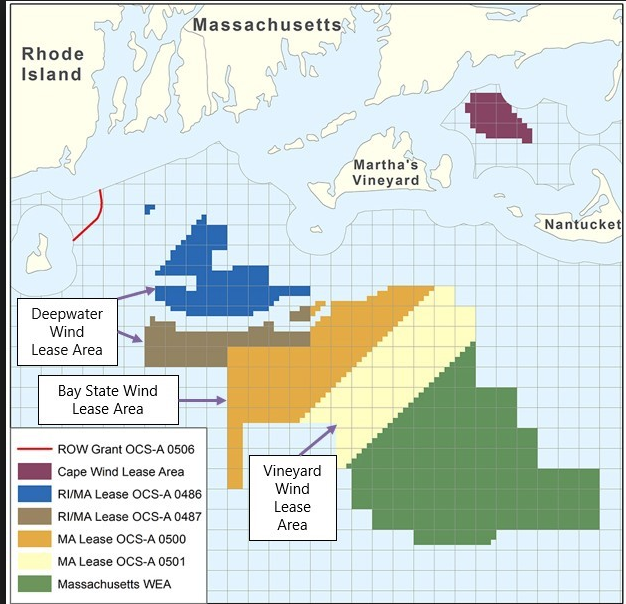Gov. Charlie Baker and other Massachusetts politicians pushed federal officials to break a deadlock over the environmental review of the Vineyard Wind offshore energy project, amid the developer’s warnings it needs an approval by the end of August.
But advocates for the commercial fishing industry say the federal Bureau of Ocean Energy Management has failed to address issues raised by the NOAA’s Greater Atlantic Regional Fisheries Office in Gloucester, Mass.
Baker met Monday in Washington, D.C., with Interior Secretary David Bernhardt to urge progress on issuing a final environmental impact statement for the 84-turbine, 800-megawatt wind array planned on a federal lease about 15 miles south of Martha’s Vineyard.
Those negotiations were ongoing. “BOEM continues to incorporate feedback on the Draft Environmental Impact Statement and is working closely with the cooperating agencies to facilitate the environmental review of the Vineyard Wind project,” according to a statement from the agency Tuesday afternoon.
Company officials have portrayed that delay as possibly endangering the future of the project if BOEM does not give an answer by the end of August, so Vineyard Wind can secure new financing and construction equipment and vessel contracts for 2020. The company has been aiming for a groundbreaking on shore side construction in December 2019.
Those start times are important, too, for qualifying the project for the 12 percent federal income tax credit for renewable energy, an incentive program set up by Congress and now phasing out.
Pentony notified BOEM that NOAA could not sign off on the environmental review, because the plan had not fully addressed fishing industry concerns. Notably the plan was for turbine towers space 0.75 miles apart, far from 2-mile interval recommended by fishing advocates, and oriented along southeast to northwest axis, rather than the east to west preferred by fishermen
In a reply, William Brown, BOEM’s chief environmental officer, said those objections did not “justify the likely project delays and likely failure of the project,” Reuters reported, quoting the letter. If NOAA maintained its position, Brown wrote that BOEM was prepared to go ahead and issue the environmental impact statement without NOAA concurrence, according to Reuters.







